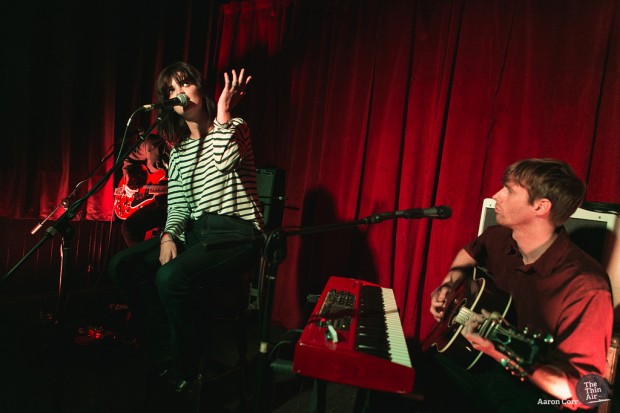Every second we’re alive we move closer to our conclusion. We hope for ourselves there will be some dignity and grace in our final moments and that we might finish the whole existence thing with our minds intact, painlessly drifting into the great unknown. Sadly, though, that probably won’t be the case. Estimates from Genio state that by 2046, 150000 people in Ireland will suffer from dementia with two-thirds of those being women. Neurodegenerative diseases, such as dementia, are becoming the shadow which defines the latter section of so many lives. Yet in spite of the looming nature of this ailment, the cultural well on the topic is pretty dry. There are films like Still Alice and Away From Her, but for the most part, we seem to have avoided discussion in our cultural milieu. Maybe it’s because the elderly don’t have as much disposable income, or maybe it’s because we’re too afraid to talk about it, but for whatever reason, these illnesses are sitting in the room like some neon green elephant, and we stay silent. Hannah Peel, though, isn’t and with her Kate Bush inflected electronica Awake But Always Dreaming album, she’s willing to explore that which encases the mind in treacle and brings the dreadful, unbreaking fog: dementia.
Awake is an album of very distinct halves. The first half is one of rigidity and form. The songs are much better structured and have a greater pop sensibility. For example, the album’s opener, ‘All That Matters’, has the kind of chorus that wouldn’t be a million miles from Kodaline. In the poppier moments, the record does struggle to say or do much to set it apart from the multitude of other indie rockers. But when Peel lets her more abstract and experimental side shine, it flourishes into something beautiful. ‘Standing On The Roof Of The World’ has minimalist ominous beat and these muted, yet harsh electronic cries that magnificently contrast with Peel’s assured and intensely haunting vocals. ‘Don’t Take It Out On Me’, which sounds as though Imogen Heap was asked to contribute to Steven Wilson’s Hand.Cannot.Erase album, is a spellbinding ditty whose use of vocal modulation and click track drums make it so much richer. There is an ambiance that runs throughout the first half that makes it feel like a cohesive unit. It’s confident and measured but as the record proceeds the analog whirls begin to suffocate the other, previously crisp, instrumentation. There is a lingering sensation that things are beginning to blur as though our true north is shifting in ways we don’t quite realise. We’re starting to lose ourselves.
This sensation comes to the fore in the second half, which is much more fluid and hazy as though one is desperately grasping through a thick fog for anything to orientate themselves. The song lengths grow and become more directionless. The title track, which clocks in at just under eight minutes, is made up of fearful breaths, waif-like whispers, and throbbing electronics. When Peel’s voice comes in, it’s delicate and beautiful, but all that surrounds it, the stuttering vocal loops and seemingly random synth bleeps, is uncertain and nervous. As the song progresses, things get increasingly foreboding and the only absolute becomes the pounding of thick bass drums. She achieves a similar effect on ‘Foreverest’. The latter part of the collection is evocative of Kate Bush’s Hounds Of Love and the two aforementioned songs are dripping in appreciation for Bush’s ‘Waking The Witch’. They create this overwhelming dread and disorientation that Peel wisely chooses to wrap up with a cover of Paul Buchanan‘s ‘Cars in the Garden’. It’s gentle and forlorn with an appropriate level of dread and adds a nice punctuation mark on her treatise. Ultimately, Awake is a beautiful record that conveys so much with the grace and humanity that the subject deserves. Will Murphy






